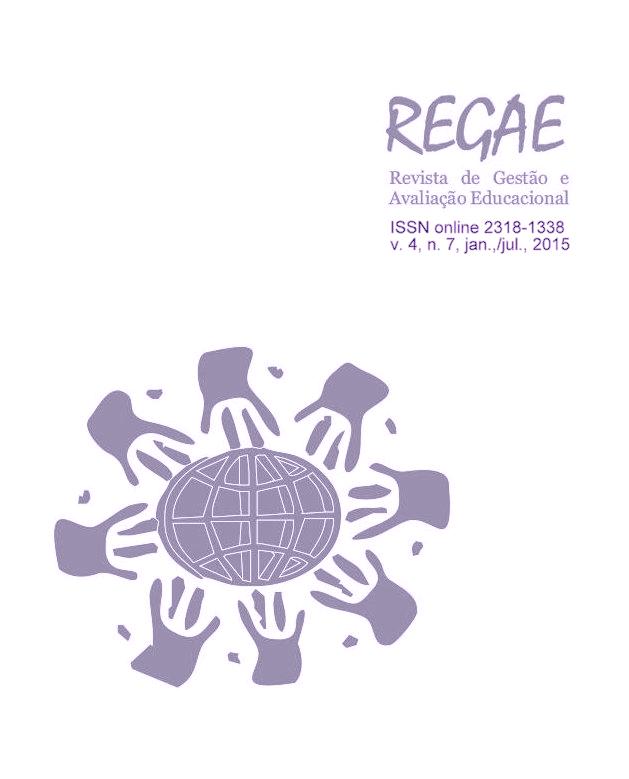School management: the views of education professionals on the system of educational technology in the state of Rio de Janeiro
DOI:
https://doi.org/10.5902/2176217114875Abstract
The objective of this study was to identify the views of users of educational technology for school management, used in state schools in the state of Rio de Janeiro. A survey with eleven questions was applied to the professionals who are part of the administrative, pedagogical staff, in addition to teachers from a state education institution located in the city of Volta Redonda/RJ for the period 4 at to 22 november 2013 in the morning and evening. Were 40 respondents, mostly composed of teachers working in the classroom. The result showed that for some professionals surveyed, the tool used by public schools in the state is innovative and useful, but it is far to cover all the needs of education. Also, it was found that the management system has strengths and weaknesses, being all the actors in the school universe the obligation to enhance the strengths and reduce the weaknesses in the pursuit of quality improvement in education in the state of Rio de Janeiro.
Key-words: education, technology, management.
Downloads
References
BRASÃO, Mauricio dos Reis. Navegar é preciso: as tics na formação de pedagogos, o olhar dos formadores. Uberaba: Uniube, 2011. 154f. Dissertação (mestrado em Educação). Programa de Mestrado em Educação, Universidade de Uberaba.
BRASIL. Constituição da República Federativa do Brasil de 1988. Disponível em <http://www.planalto.gov.br/ccivil_03/constituicao/constituicao.htm>. Acesso em 14 abr., 2014.
BRASIL. Lei n. 9.394, de 20/12/1996. Estabelece as diretrizes e bases para educação nacional. Disponível em <http://www.planalto.gov.br/ccivil_03/leis/l9394.htm>. Acesso em 14 abr., 2014.
CASTRO, Maria Helena Guimarães de. Sistemas de avaliação da educação no Brasil: avanços e novos desafios. Revista São Paulo em Perspectiva, São Paulo, v. 23, n. 1, 2009, p. 5-18. Disponível em <http://www.seade.gov.br/produtos/spp/v23n01/ v23n01_01.pdf>. Acesso em 14 abr., 2014.
GIL, Antonio Carlos. Como elaborar projetos de pesquisa. São Paulo: Atlas, 2010.
INEP. Índice de Desenvolvimento da Educação Básica. Disponível em <http://portal.inep.gov.br/web/portal-ideb>. Acesso em 15 abr., 2014.
LIMA, Roberta de Abreu. Quando a aula chega à rede. Revista Veja, 15 set., 2010. Seção Educação, edição 2182, ano 43, n. 37, p. 124-126.
LÜCK, Heloísa. A gestão participativa na escola. Petrópolis: Vozes, 2006.
MEC. Programa nacional de fortalecimento dos conselhos escolares. Conselho escolar, gestão democrática da educação e escolha do diretor. Caderno 5, p. 15. Brasília, 2004. Disponível em <http://portal.mec.gov.br/seb/arquivos/pdf/Consescol/ce_cad5. pdf>. Acesso em 16 abr., 2014.
RAUPP, Fabiano Maury; BEUREN, Ilse Maria. Metodologia da pesquisa aplicável às ciências sociais. In: BEUREN, Ilse Maria (org.). Como elaborar trabalhos monográficos em contabilidade: teoria e prática. São Paulo: Atlas, 2006, p. 76-97.
RICHARDSON, Roberto Jarry. Pesquisa social: métodos e técnicas. São Paulo, Atlas, 1999.
RIO DE JANEIRO. Lei n. 5.597/2009. Aprova o plano estadual de educação. Disponível em <http://download.rj.gov.br/documentos/10112/448712/DLFE31621.pdf/planoEstadual deeducacao.pdf>. Acesso em 15 abr., 2014.
RIO DE JANEIRO. Secretaria de Estado de Educação: conexão educação. Disponível em . Acesso em 26 nov., 2013.
SILVA, Marco. Internet na escola e inclusão. In: ALMEIDA, Maria Elizabeth B. de; MORAN, José Manuel. Integração das tecnologias na educação: salto para o futuro. Brasília: MEC-Seed, 2005. Disponível em <http://portal.mec.gov.br/seed/arquivos/ pdf/2sf.pdf>. Acesso em 26 nov., 2013, p. 62-68.
TEIXEIRA, Elizabeth. As três metodologias: acadêmica, da ciência e da pesquisa. Petrópolis: Vozes, 2011.
Downloads
Published
How to Cite
Issue
Section
License
Authors keep copyright and concede to the magazine the right of first publication, with the work simultaneously licensed under the Creative Commons Attribution 4.0 International, non-commercial license with no derivative work, which allows to share the work with no author recognition and initial publication in this magazine.
Authors has authorization to overtake additional contracts separately, to distribute a non-exclusive version of the work published in this magazine: For example: to publish in an institutional repository or as a chapter of a book, with authorial recognition and initial publication in this magazine.
Authors are allowed and are encouraged to publish and distribute their work online. For example: in institutional repositories or in their own personal page – at any point before or during the editorial process, because this can result in productive changes, as well as increase the impact and the mention to the published work.






